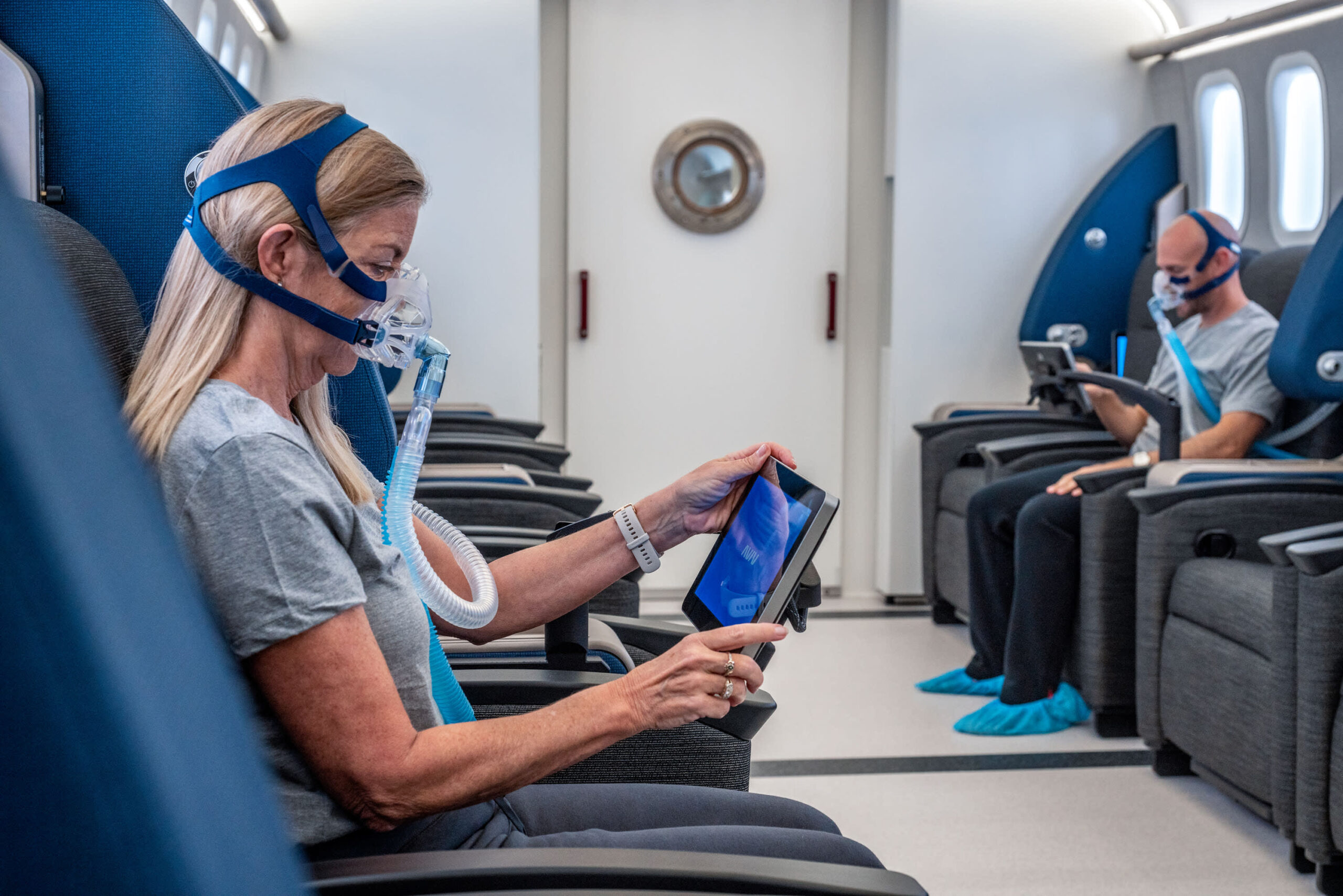Hyperbaric Oxygen Therapy (HBOT) is a medical treatment that involves breathing pure oxygen in a pressurized chamber. This process increases the oxygen content in the patient’s blood, which can help to accelerate the healing of damaged tissues, fight infections, and improve the outcome of various medical conditions.
However, the success rate of HBOT can vary significantly based on a range of factors. This blog post will explore these key factors to provide a comprehensive insight into what affects the outcomes of HBOT.
Patient-Specific Factors
Before delving into the technical and environmental aspects of HBOT, it’s critical to acknowledge the role of individual patient characteristics. These factors can greatly influence the effectiveness of the therapy.
Age and Overall Health
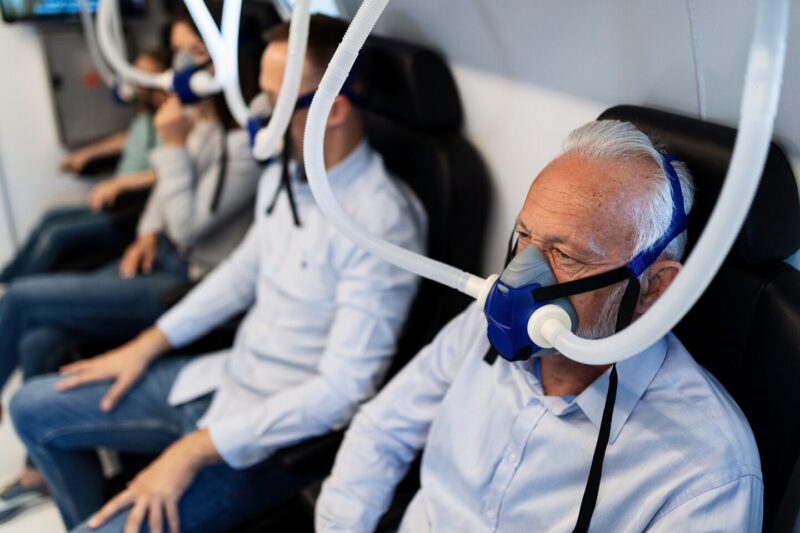
The age and general health of a patient play crucial roles in how effectively HBOT can work. Younger individuals with stronger immune systems and better regenerative capabilities tend to respond more positively to the therapy.
Conversely, older patients or those with compromised health may experience slower or less significant improvements. This is because the body’s ability to repair itself and respond to the increased oxygen levels can be diminished by age and underlying health conditions.
Specific Condition Being Treated
The particular medical condition being treated with HBOT also significantly impacts its success. Conditions like diabetic foot ulcers, certain types of infections, and radiation injuries have shown promising responses to HBOT.
The therapy’s ability to enhance oxygen delivery to hypoxic tissues makes it particularly effective in these cases. However, the success rate can vary for conditions where the relationship between oxygenation and healing is less direct.
Compliance and Treatment Protocol
Patient compliance with the prescribed treatment protocol is another critical factor. The number and duration of HBOT sessions can influence outcomes, with some conditions requiring more extensive treatment to achieve optimal results.
Adherence to session schedules and the specific protocols for each condition are essential for maximizing the therapy’s benefits. Patients who follow their treatment plans closely tend to experience better outcomes.
Technical and Environmental Factors
Beyond patient-specific variables, the technical execution and environmental conditions of HBOT also play pivotal roles in determining its effectiveness.
Quality of the Hyperbaric Chamber
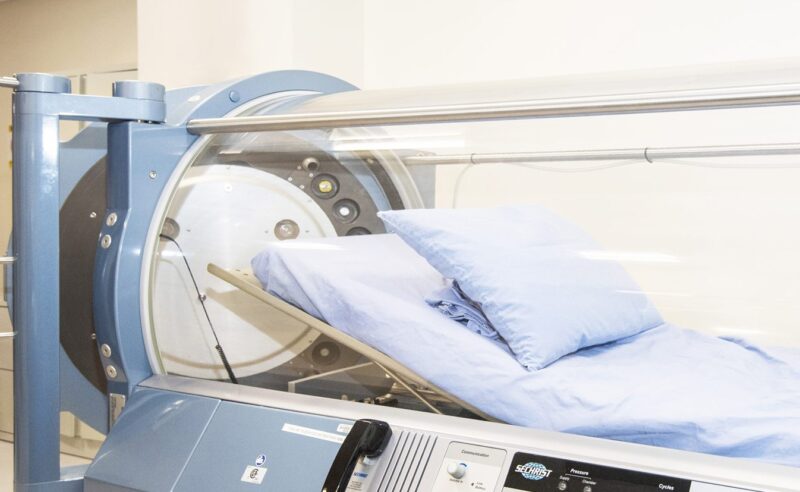
The design, maintenance, and operation of the hyperbaric chamber are fundamental to the success of HBOT. Modern, well-maintained chambers that provide consistent and controlled pressurization and oxygenation levels ensure that patients receive the most effective treatment.
Any discrepancies in chamber performance can affect the delivery of therapeutic levels of oxygen, potentially compromising treatment outcomes.
For more detailed insights into the cutting-edge technology and best practices in the care and operation of hyperbaric chambers, visit oxynergy2.com. This resource offers valuable information that underscores the importance of chamber quality in the therapeutic process.
Treatment Protocol Specifications
The specifics of the treatment protocol, including pressure levels and duration of oxygen exposure, are tailored to the condition being treated and the individual patient. Protocols that are precisely calibrated to optimize oxygen delivery and uptake can significantly enhance the therapy’s effectiveness.
Healthcare providers must stay updated on the latest research and guidelines to ensure protocols are evidence-based and optimized for the best outcomes.
External Environmental Factors
Lastly, external environmental factors, such as the patient’s exposure to pollutants or toxins, can influence the efficacy of HBOT.
Patients living in environments with high pollution levels may have compromised respiratory function, affecting the body’s ability to utilize the additional oxygen provided during therapy.
Healthcare providers might need to consider these external factors when planning and adjusting HBOT protocols.
Impact of Pre-existing Medical Conditions
The presence of pre-existing medical conditions significantly influences the outcome of Hyperbaric Oxygen Therapy. Conditions such as diabetes, chronic heart diseases, and respiratory issues can affect the body’s response to increased oxygen levels.
For example, patients with diabetes may have compromised blood circulation, affecting the distribution of oxygenated blood to tissues needing repair.
Medical professionals need to consider these conditions when planning HBOT, as adjustments to the treatment protocol may be necessary to accommodate the unique challenges they present.
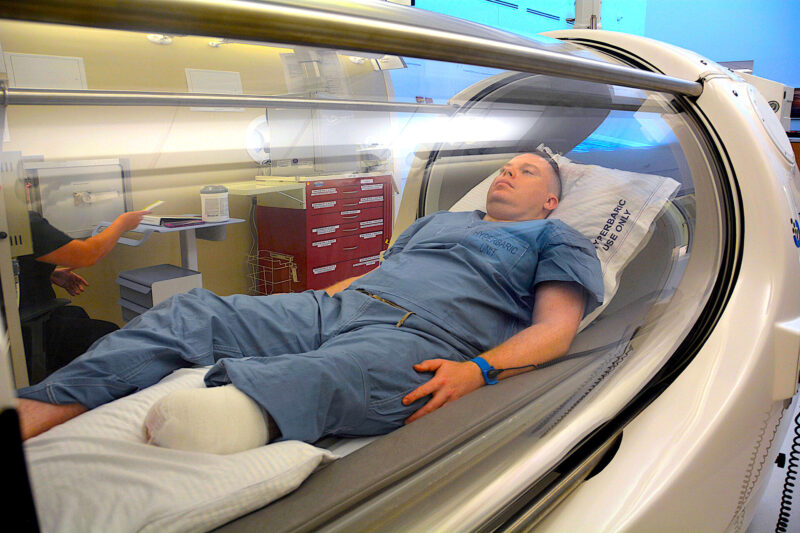
Technological Advances in HBOT
Technological advancements in the design and operation of hyperbaric chambers are paving the way for more effective and safer treatments.
Innovations in chamber technology, such as improved pressure control systems and enhanced oxygen delivery mechanisms, contribute to more precise and controlled therapy sessions.
These technological improvements not only increase the efficacy of HBOT but also enhance patient comfort and safety during treatment. Ongoing research in hyperbaric medicine is crucial for identifying new applications of HBOT and refining existing protocols.
As scientists and medical professionals uncover more about the mechanisms through which increased oxygen levels promote healing, they can develop more effective treatment strategies for a broader range of conditions.
This research is vital for expanding the applicability of HBOT and improving outcomes for patients worldwide.
Environmental and Lifestyle Factors
The impact of a patient’s environment and lifestyle on the success of Hyperbaric Oxygen Therapy cannot be overstated. Factors such as diet, exercise, and exposure to pollutants can influence the body’s ability to heal and respond to HBOT.
A healthy lifestyle can enhance the effectiveness of the therapy by improving overall health and increasing the body’s capacity for repair.
Patient Education and Support
Educating patients about the process and benefits of Hyperbaric Oxygen Therapy is key to ensuring their cooperation and compliance with treatment protocols.
Understanding what HBOT entails and its potential impacts can help patients feel more comfortable and committed to the treatment process.
Additionally, providing emotional and psychological support is crucial for patients undergoing HBOT, as it can be a physically and mentally demanding experience.
Integrating HBOT with Other Treatments
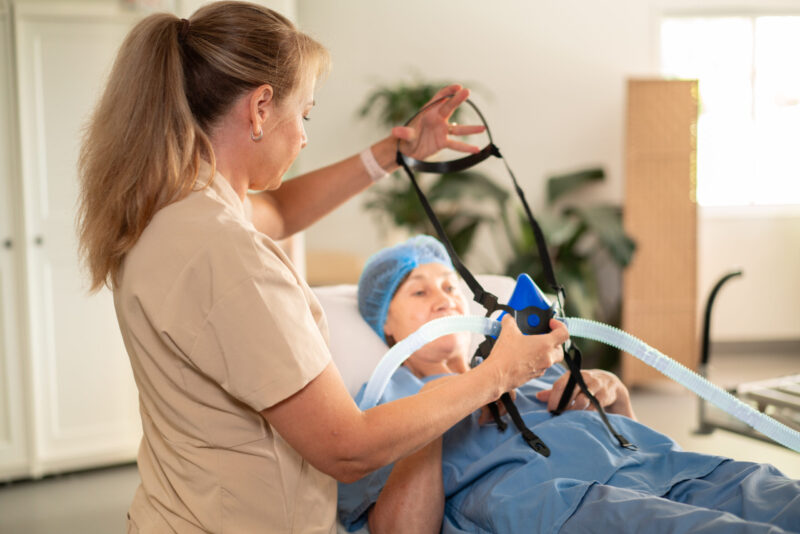
Hyperbaric Oxygen Therapy is often most effective when used in conjunction with other medical treatments. For conditions like wound healing, combining HBOT with conventional wound care techniques can accelerate recovery.
Similarly, for cancer patients experiencing side effects from radiation therapy, HBOT can complement other supportive care measures to improve quality of life.
Conclusion
In conclusion, the success rate of Hyperbaric Oxygen Therapy is influenced by a complex interplay of patient-specific factors, technical considerations, and environmental conditions. Understanding these factors is crucial for optimizing HBOT protocols and maximizing the therapy’s benefits for patients.
As research progresses and our knowledge of HBOT deepens, healthcare providers can continue to refine their approaches, ensuring that patients receive the most effective and personalized treatment possible.

